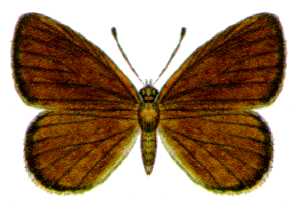
Candalides is a large genus of butterflies in the family Lycaenidae. The species of this genus are found in the Australasian realm.

USS Helenita (SP-210) was a yacht leased from its owner by the U.S. Navy during World War I. She was outfitted as an armed patrol craft and initially assigned to North Atlantic Ocean duty, but found to be too lightly built for the ocean. She was then relegated to patrol of Long Island Sound and the Delaware Bay until war's end, when her guns were removed and she was returned to her owner.

Glochidion ferdinandi, with common names that include cheese tree, is a species of small to medium–sized trees, constituting part of the plant family Phyllanthaceae. They grow naturally across eastern Australia, from south–eastern New South Wales northwards to northern and inland Queensland, in rainforests and humid eucalypt forests. Frugivorous birds such as pigeons, figbirds and parrots consume its fruit. The tree roots and branches are toxic to dogs, causing liver failure and death.

Philiris is a genus of butterflies in the family Lycaenidae. The species of this genus are found in the Australasian realm, mostly inhabiting tropical rainforests. Philiris was erected by Julius Röber in 1891. It is a speciose genus. Tite decided on 56 species. Sands added 11 species and placed the taxa into 21 species groups. Most species are on New Guinea. Tite considered Philiris and Candalides Hübner, 1819 to be sisters. Eliot (1973) placed Philiris in Luciini Waterhouse & Lyell, 1914, close to Hypochrysops C. et R. Felder, 1860. Compared to other members of the tribe, Philiris have relatively uniform ventral patterns with usually silvery-white ground color.

Candalides absimilis, the pencilled blue or common pencil-blue, is a species of butterfly of the family Lycaenidae. It is found along the east coast of Australia, including Queensland, the Australian Capital Territory, New South Wales and Victoria.

Candalides acasta, the blotched blue, is a species of butterfly of the family Lycaenidae. It is found in southern Australia, including Queensland, New South Wales, Victoria, Tasmania, South Australia and Western Australia.

Candalides xanthospilos, the yellow-spot blue, is a species of butterfly of the family Lycaenidae. It is found in along the eastern coast of Australia, including Queensland, New South Wales and Victoria.

Candalides heathi, the rayed blue, is a species of butterfly of the family Lycaenidae. It is found in southern Australia, including South Australia, New South Wales and Victoria.

Candalides hyacinthina, the varied dusky-blue, is a species of butterfly of the family Lycaenidae. It is found along the east coast of Australia, including South Australia, New South Wales, Western Australia and Victoria.

Candalides cyprotus, the cyprotus blue or copper pencil-blue, is a species of butterfly of the family Lycaenidae. It is found along the east coast of Australia, including South Australia, New South Wales, Western Australia and Victoria.

Candalides grandissima is a species of butterfly of the family Lycaenidae. It is found in New Guinea.
Candalides coerulea is a species of butterfly of the family Lycaenidae. It was described by Röber in 1886. It is found on the Aru Islands and in West Irian.
Candalides consimilis, the consimilis blue, is a species of butterfly of the family Lycaenidae. It was described by Gustavus Athol Waterhouse in 1942. It is found in Australia.
Candalides geminus, the Geminus blue, is a species of butterfly of the family Lycaenidae. It was described by Edwards and Kerr in 1978. It is found in Australia.

Candalides margarita, or Margarita's blue, is a species of butterfly of the family Lycaenidae. It was described by Georg Semper in 1879. It is found in Australia and New Guinea.

La ronca de oro, is a Colombian telenovela produced by CMO Producciones for Caracol Televisión. It is based on the life of the Colombian singer Helenita Vargas.












